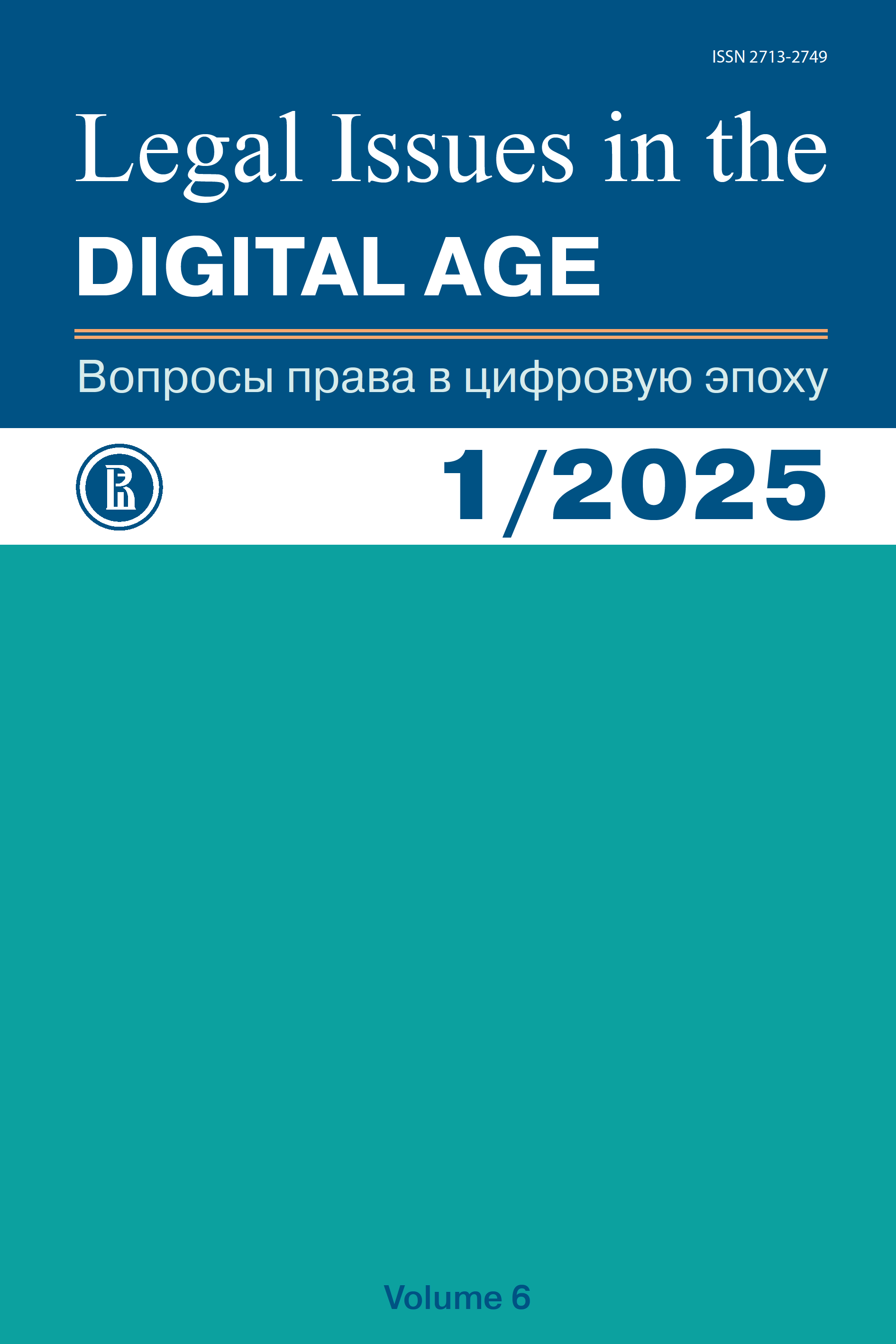Legal Evolution of Human Rights Protection in Uzbekistan Amid Digital Transformation
Аннотация
The article is devoted to the development of legislation of Uzbekistan in the context of the transition to a digital economy. The article provides an overview of the norms introduced into the law taking into account the impact of digitalization on public relations. The author examines new provisions of the Constitution, codes, and other regulatory legal acts. Particular attention is paid to the review of concepts and strategies for the development of Uzbekistan until 2030 and their provisions regarding digital technologies. The author notes that the legislation of Uzbekistan is developing taking into account global trends, including such a factor as the intensive development of digital technologies. It is important to continue measures to improve legislation in the field of human rights taking into account the digitalization factor and to ensure reliable guarantees for the protection of human rights in the digital economy.
Литература
Binns R. (2017) Fairness in Machine Learning: Lessons from Political Philosophy. Conference on Fairness, Accountability, and Transparency. Proceedings of Machine Learning Research, vol. 81, pp. 1–11.
Bradford A. (2023) Digital Empires: The Global Battle to Regulate Technology. Oxford: University Press, 599 p. DOI: https://doi.org/10.1093/oso/9780197649268.001.0001
Calo R. (2017) Artificial Intelligence Policy: A Primer and Roadmap. University of California Davis Law Review, no. 51(2), pp. 399–435. DOI: https://doi.org/10.2139/ssrn.3015350
De Gregorio G. (2021) The Rise of Digital Constitutionalism in the European Union. International Journal of Constitutional Law, vol. 19, issue 1, pp. 41–70. DOI: https://doi.org/10.1093/icon/moab001
Floridi L. and Cowls J. (2019) A Unified Framework of Five Principles for AI in Society. DOI: https://doi.org/10.2139/ssrn.3831321
Gasser U., Almeida V.A. (2017) A Layered Model for AI Governance. IEEE Internet Computing, no. 21(6), pp. 58–62. DOI: https://doi.org/10.1109/MIC.2017.4180835
Kayumov B. (2023) The Future of the Digital Judicial System of Uzbekistan: New Challenges and Prospects. 4 July. https://uztrend.uz/word-press/archives/3661 (in Russ.)
Kettemann M.C., Peukert A. et al. (2022) The Law of Global Digitality. London: Routledge, 255 p. DOI: https://doi.org/10.4324/9781003283881
Khabrieva T.Yu. (2019) Constitutional Development in the Context of Modern Challenges and Global Social Transformations. Gosudarstvennaya sluzhba=State Service, no.1, pp. 17–25 (in Russ.) DOI: https://doi.org/10.22394/2070-8378-2019-21-1-17-25
Mantelero A. (2018) AI and Big Data: A Blueprint for a Human Rights, Social and Ethical Impact Assessment. Computer Law & Security Review, no. 4, pp. 754–772. DOI: https://doi.org/10.1016/j.clsr.2018.05.017
Rassolov I.M. (2022) Law and the Internet: Theoretical Issues. Moscow: Norma, 304 p. (in Russ.)
Svantesson D.J.B. (2017) Solving the Internet Jurisdiction Puzzle. Oxford: University Press, 254 p. DOI: https://doi.org/10.1093/oso/9780198795674.001.0001
Tufekci Z. (2015) Algorithmic harms beyond Facebook and Google: Emergent challenges of computational agency. Colorado Technology Law Journal, no. 13, pp. 203–218.
Yeung K. (2018) Algorithmic Regulation: A Critical Interrogation. Regulation & Governance, no. 12, pp. 505–523. DOI: https://doi.org/10.1111/rego.12158
Zuboff S. (2019) The Age of Surveillance Capitalism: The Fight for a Human Future at the New Frontier of Power. New York: Public Affairs, 691 p.
Copyright (c) 2025 Saidov A.Kh.

Это произведение доступно по лицензии Creative Commons «Attribution-ShareAlike» («Атрибуция — На тех же условиях») 4.0 Всемирная.
Авторы, присылающие рукописи для рассмотрения к публикации в Журнале, принимают Политику лицензирования, авторских прав, открытого доступа и использования репозиториев.









